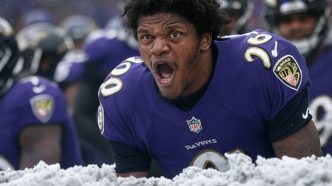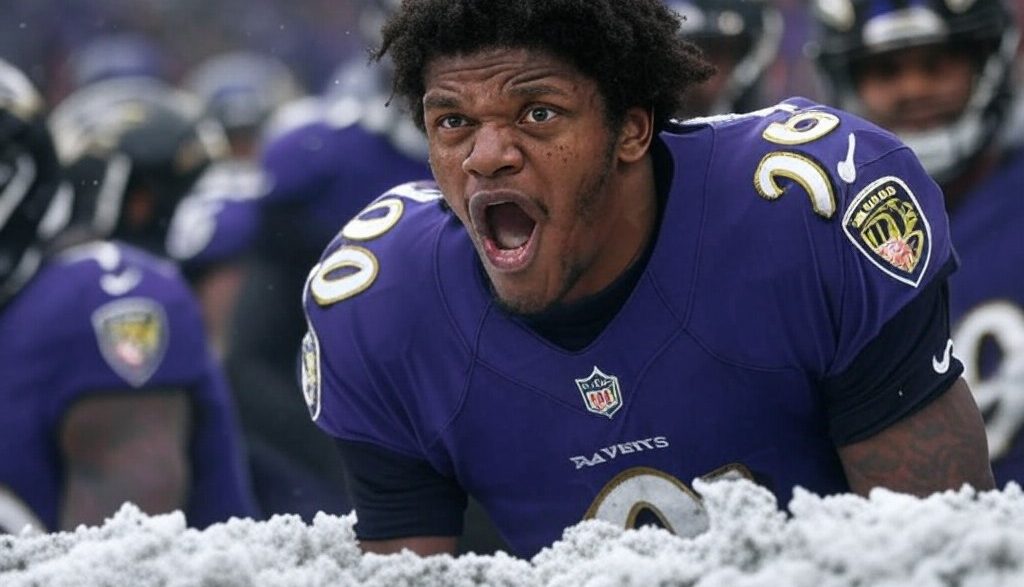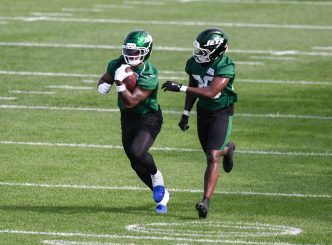Lamar Jackson is no stranger to the MVP conversation, with two titles already in his pocket from 2019 and 2023. As chatter intensifies about him potentially snagging a third MVP award come the 2024 NFL Honors, it’s hard to argue against his regular-season brilliance. However, when it comes to the postseason, things seem to shift gears for Jackson and the Baltimore Ravens.
In postseason play, Baltimore’s story with Jackson at the helm has been a challenging one—a 3-5 record in his eight appearances. Despite completing 146 of 241 passes for 1,753 yards and logging 10 touchdowns, his seven interceptions and four fumbles have weighed heavily, producing a passer rating of 84.6 — numbers that fall short of the high bar he sets during the regular season.
This year, the questions about Jackson’s postseason performances have lingered, especially after Baltimore’s narrow 27-25 loss to the Buffalo Bills. Jackson put up decent stats that night: 18 of 25 passes for 254 yards, two touchdowns, an interception, and a fumble, resulting in a passer rating of 114.4. Add six carries for 39 yards to that, and you wonder, what went wrong? Turnovers played a huge role. Baltimore gave up the ball three times without a reply from Buffalo, shaping the fate of this fiercely contested matchup.
The pivotal interception came with just under four minutes left in the first quarter, and Jackson later addressed the play as a misstep in reading the defense. Bills Safety Taylor Rapp took full advantage, capitalizing on Jackson’s oversight. Similarly, the fumble at the second quarter’s midpoint, initiated by an errant snap followed by a strip-sack courtesy of Damar Hamlin, turned into an opportunity Bills defender Von Miller pounced on.
Of course, the blame isn’t entirely Jackson’s to bear. Tight end Mark Andrews’ late-game fumble also hurt Baltimore’s momentum, coupled with some questionable officiating calls like the pass interference against cornerback Tre’Davious White. The latter effectively handed the Bills a lead that could have easily swung the other way had a field goal resulted instead of a touchdown.
Another dimension to dissect is the game plan from Ravens’ offensive coordinator Todd Monken. The Bills employed some unusual tactics — more blitzing, increased man coverage, and surprisingly frequent base defense — contrasting their typical reliance on nickel packages. Baltimore had seen success against this squad earlier in the year, playing around Buffalo’s strategies with their dynamic and misdirection-heavy offense. Yet, the elements that had spelled success in Week 4 were conspicuously absent this time.
Despite knowing the Bills’ vulnerabilities against the read-option, Monken seemed to shelve the play, running just four read-options, which netted them a meager 22 yards. In snowy conditions, with questionable footing, misdirection should have been in Baltimore’s playbook. Yet, Monken leaned away from what had worked, a decision that left many scratching their heads.
And when the stakes rose, such as during the crucial third-quarter conversion attempt following Derrick Henry’s touchdown, the Ravens opted for a passing play when a more straightforward approach may have been fruitful.
At the end of it all, mistakes and intriguing play calls marred the Ravens’ playoff run. But Jackson stands at the heart of the reflection, acknowledging that the ball security issues need addressing. He lamented the missed opportunities, reflecting, “If I protect the ball, we’re not having this conversation.” As Baltimore navigates the offseason, there’s a dual focus: reshaping their playoff narrative and supporting Jackson in realizing his postseason potential. The pieces are there, but execution will be key in changing the script.








